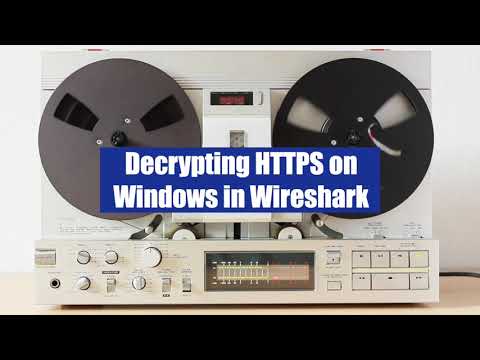I’m really impressed from your privacy setup 
if you do not mind, maybe would you like to share your Firefox privacy settings?
Actually, I don’t know if I know everything I’ve done myself. The easiest way is to insert a user.js who fixes most things.
This:
Or:
I have been using Surfshark since the New Year. Before that I went with AirVPN. Surfshark is cheap, but very fast and has plenty of servers across the globe. AirVPN is designed and maintained by hacker-types and it is very full-featured, but in the end, I didn’t use 98% of the features and just need something basic that is easy to set up and use. Surfshark offers a cli interface for Linux, while AirVPN has a gui frontend. I’m happy with Surfshark and feel that it can’t be beat for the money.
I don’t understand packet sniffing worries that have been expressed here… HTTPS prevents anything useful being extracted from your traffic. Yes, even on public wifi.
I don’t understand that either. I’ve tried to say that most of it is already encrypted on the internet today. A few years ago, things looked a little different.
There are plenty of mitm techniques like that:
There’s even more scary s**t than that though which is ![]()
What i mean is…NO ONE IS SAFE!!!111111111111 ![]()
![]()
![]()
@adreampuppet
Welcome! ![]()
A few points
- If you don’t have control of the network, there are all kinds of nasty ways to proxy your traffic and create man in the middle attacks. https can be broken and inspected.
- The encryption strength of ssl is partially controlled by the site you are visiting
- Not all your traffic goes over https
- Even with https an attacker(or an ISP) can track what sites you are visiting
Strong VPN encryption is much harder to break or inspect. It also gives you more control.
Just like everything else, it depends on how privacy-centric/security-centric you are and which risks you care about.
It would be fun to know what @dalto and @otherbarry do exactly to protect themselves.
Now I’m not talking about VPNs. The other thing that matters. How do you protect yourself from for example, Google? I assume you’re not using the services. Same with smart stuff. Which is almost impossible to protect yourself from.
One mistake I know I make is that I usually write too much. I’m the one who’s a little slow sometimes 
But write exactly what you’re doing so the rest of us can learn! When it comes to VPNs, which ones do you use? And how do you know they’re completely safe? How do you pay and so on. We’re all here to learn new things. 
I don’t typically go through all of it for a few reasons
- We all have different technology situations. Not many people have a home network as complicated as mine or with as many devices.
- The things I do are built to work together. Doing some but not all of them could give you a false sense of protection.
- I don’t believe what is right for me is necessarily right for someone else. You can’t protect against everything so you have to choose what is most important to you, personally.
- The privacy-centric person in me is uncomfortable sharing every detail about my network and security design.
To be fair, this is supposed to be a topic about VPNs.
Not using the services, while important, doesn’t block google/facebook/etc tracking. In addition to trying to block them as much as possible/practical for my situation, I make strict use of temporary containers. In my opinion, this is one of the most overlooked methods of privacy protection. When nearly every tab is isolated, it makes cookie-based tracking almost worthless. It is like opening every tab in a completely different freshly installed browser.
The reality is that almost any approach to protecting your privacy does very little in isolation. You need to combine many different methods. When someone says I am not worried about “x” because I do “y”, most(not all) of the time it is a fallacy. I will almost always try to share an opposing opinion to that. On the other hand, if someone understands the risks and determines that they don’t care about that aspect of privacy, that is a personal choice and I won’t argue that.
I know, but is so much more than just turning on a VPN, I thought. Turning on a VPN is easiest if you need to. I have more problems with everything else 
But I have a good idea of what’s going on in my network. Always something. I block most things that don’t have to go online. I also have rules in the firewall to minimize Big Tech and similar sites.
I’ve been using Ubiquiti for a few years and it’s very easy to stop a lot there. I have now switched to MikroTik a few months ago and have not fully learned the firewall yet. I’ve also run pfSense before. Liked it, but don’t have a good box for it now. Maybe I’ll build something later.
Thank you for your answer. I take it and learn all the time.
Plus one for that, containers are a game changer! ![]()
However there’s still favicon supercookie attack unresolved in most browsers i think ![]()
@SweSG start by killing Windows 10, proves to be good practice against nasty stuff ![]()
Yes, but at least I’ve stripped everything and as far as I can tell, it doesn’t talk to anyone. If I don’t want to.
I read about that a while back. Was there a bug in Firefox that made it not work on Firefox?
Maybe at some point, but now i still can get unique id here both on Librewolf and Firefox: https://supercookie.me/
I totally disable favicon. Now the test doesn’t even go through. It just goes around and around all the time.
Edit:
This:

Edit2:
It’s not as pretty. But it’s worth it!
![]()
Indeed, until it’s universally fixed - better safe than sorry 
Container like this? https://addons.mozilla.org/en-US/firefox/addon/facebook-container/
I believe a vpn is just 1 part of privacy.
No individual ones are kinda pointless, more like this for everything:
The facebook one is still useful even if you do other container solutions because it does more than containerize things. It also does blocking and notification.
This is the one I use:
It creates on-demand short-lived containers using rules that keep everything separate.
Can’t you do blocking part with ublock origin though?
Social filters and stuff

